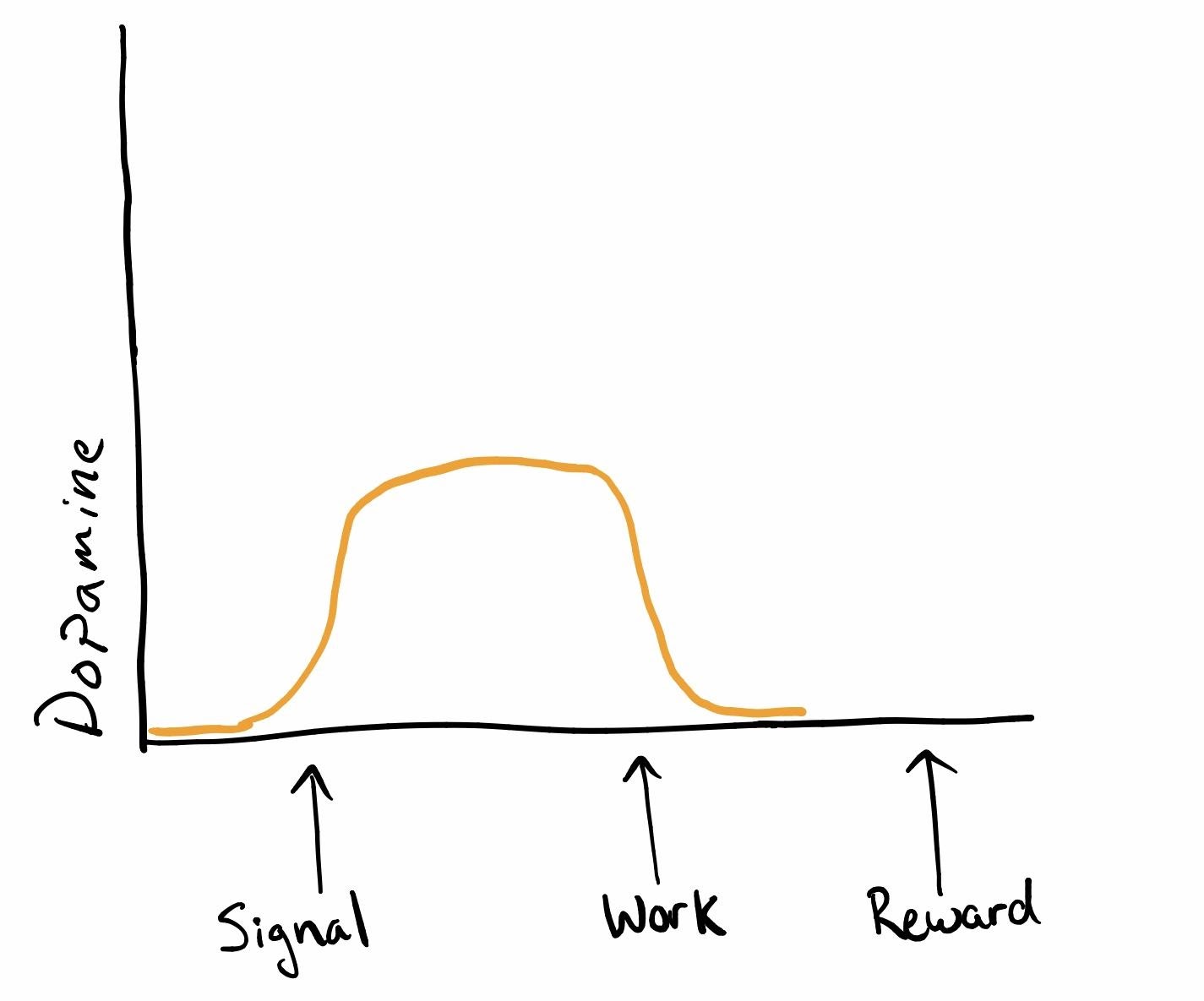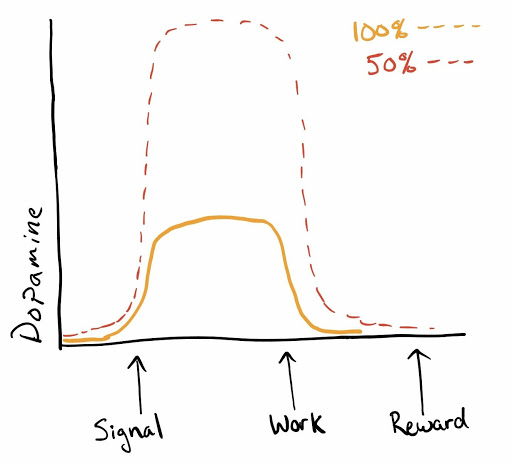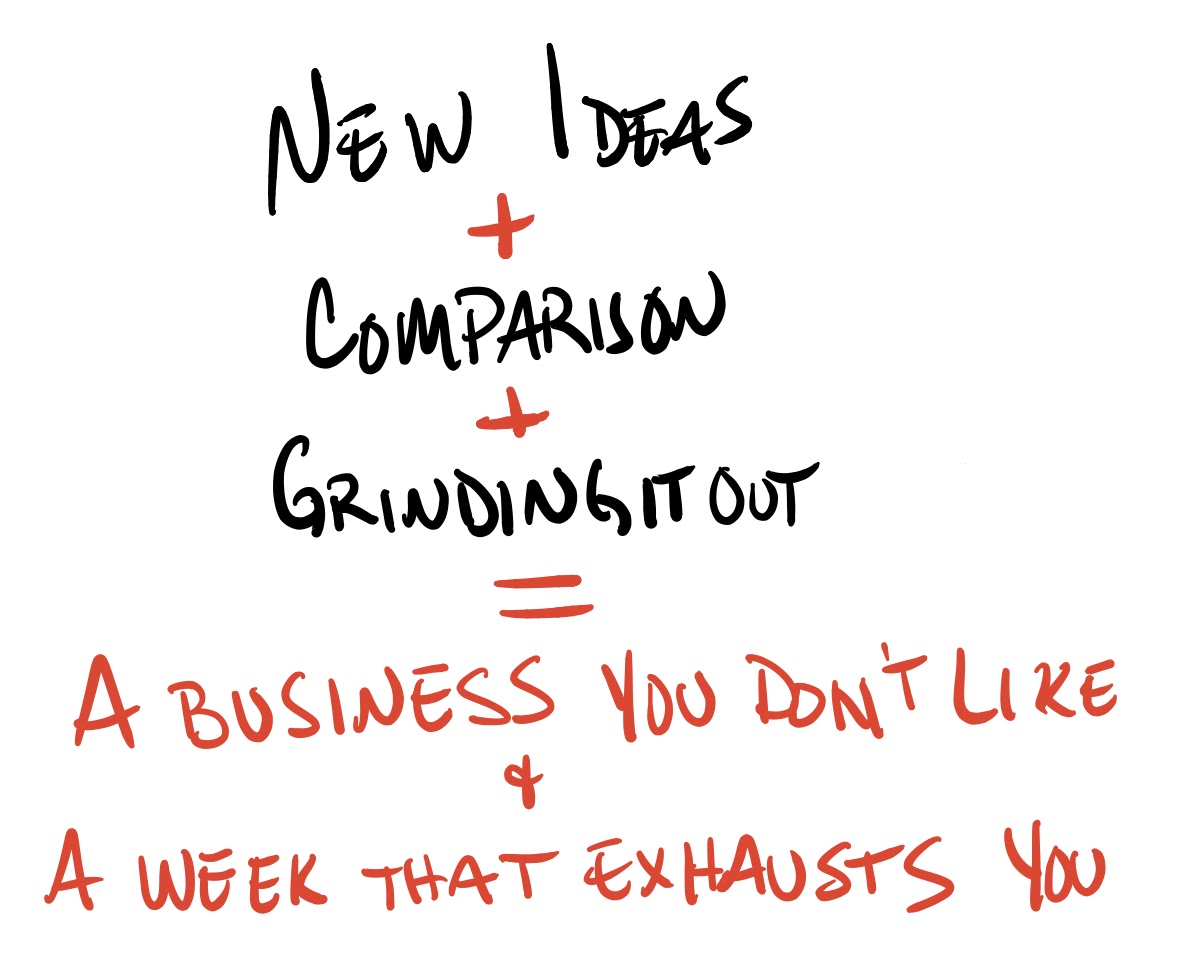The problem with how society has framed motivation for you
I don’t know about you, but when I think about the greatest achievements a person can have, this one always comes to mind:
- An Olympian fighting through challenging conditions and winning.
Like in 2016 when Michael Phelps won the gold medal even though his goggles broke the moment he dove into the water.
Even Rowdy Gaines, the NBC sports commentator and former Olympic gold medalist, said that Michael’s performance stands out as the most remarkable swim from his career.
“I can’t begin to tell you how disorienting that is, to have your goggles fill with water like that,” Gaines said. “Any other mortal would have folded.”
There’s something about the theater of sport that’s inspiring.
Being able to witness the dedication, discipline, and drive to achieve personal bests is an amazing process to be a part of.
There ARE some frustrating parts though…
Seeing journalists, bloggers, and arm-chair experts, whittle their successes down to a few explanations, like:
- “The motivation it takes to succeed at this level is off-the-charts.”
It’s frustrating because it excuses away their hard work, dedication, and consistency to something that ‘us mortals’ just don’t have.
It also turns ‘motivation’ into something elusive.
Like it’s something you either have or don’t have when it comes to working at something.
Which creates this false story some people fall prey to (me included in the past):
- “I’m supposed to ‘feel motivated’ before I start something.”
- Or, “A lack of motivation is a sign you’re not doing the thing you’re passionate about.”
Both categorically false!
Society has turned motivation into a feeling you’re SUPPOSED to have BEFORE you start something.
But that’s not what the science shows…
(Excuse me while I geek out with you for a second.)
The ‘feeling’ everyone is talking about when they refer to motivation is dopamine. Also known as the ‘feel-good’ hormone or ‘happy hormone.’
You know that feeling when you finally clean up the kitchen, living room, or closet?
Ahhhhhhhh… that’s good ol’ dopamine in action.
Now here’s the thing…
In that sequence of you starting to clean, actually clean, and finish cleaning… dopamine wasn’t really present at the start.
[Cool study alert.]
Surprising Results
In 2011, Dr. Robert Sapolsky released a fascinating study.
In the study, monkeys would pull a lever ten times, and after the final pull, a treat would appear.
This graph shows that once they were given the signal to pull the levers (do the task), their dopamine levels increased, and then finally dropped once the reward appeared.
Which shows that it was the ACT OF DOING the task in ANTICIPATION of a RESULT that released the ‘feel-good’ hormone of dopamine.
Now, here’s where things get more interesting…


Sapolsky set up a new experiment that only released a reward 50% of the time when the monkeys completed the task.
And this introduction of a new variable called ‘maybe’ caused the dopamine levels to spike even higher. (As you can see in the second image.)
It turns out that, ‘maybe’ is a powerful trigger for more ‘feel-good’ hormones, than the 100% certainty of always getting a reward.
“Okay Todd, soooo… how does this apply to me, and the mountain of work, projects, and responsibilities, I have on my plate?” ~ says you, or someone else.
Thanks for asking…
The reason it’s important for me to share is:
People have linked up ‘motivation’ with ‘feeling good’ when they’re not the same thing, and it’s causing confusion, procrastination, and a lot of unhappiness.
Motivation, in its literal definition, simply means ‘mode of action.’
It’s the way you get started.
Michael Phelps once said in an interview, “I didn’t like getting up at 4 am to get to the swimming pool, but I did it because that was my commitment to my coach.”
So if you’re someone who’s been waiting for the ‘feel-good’ type of motivation that’s been passed around for decades, it may have caused you to think:
- ‘Maybe I don’t actually want it as bad as I thought I did,’ or
- ‘I’m just not cut out for reaching [insert name of big goal].’
Both of which are WRONG.
It’s not your lack of motivation that’s keeping you from the results you want. It’s that motivation was never cut out to work that way, anyway.
What you actually need is something far less sexy … but far more effective.
(And, weirdly, if you get this next, unsexy thing into the equation, you end up using the biggest motivation lever or ‘mode of action’ anyone could use.)
But first, I want you to really take this in:
If you’re struggling to reach your goals on motivation alone, it’s not you. It’s the inherently ineffective model you’ve been working with.
This is what actually WORKS
Now, here’s what you really need:
Discipline.
That’s right, as promised, the real answer to reaching those big goals is far less sexy.
It’s not about motivation… it’s in the follow-through. It’s in the practice. It’s in discipline.
This is not what our quick fix, instant gratification culture wants to hear. It’s the unpopular truth. Tough love.
Do you think Michael Phelps, the most decorated Olympian of all time, relied on feeling motivated to get into the pool every day? Nope. In fact, we know, because he’s said,
“Sometimes you don’t know how you do it either. But you do, and you don’t question it. And that makes all the difference.”
Discipline asks you to endure the tedium of repeated actions consistently without seeing immediate results.
Anyone can work hard when they feel motivated, but discipline is a whole new ball game.
It’s the trait that separates the successful from the unsuccessful, the Michael Phelpses from the Laszlo Csehs – the silver medallist in the 200-meter butterfly final where Phelps claimed a fourth world record despite swimming ‘blind’ with water-filled goggles.
Top performers show up, work through the boredom and embrace the daily practice they need to achieve their goals until it’s second nature and they can do it with their eyes closed.
(In Michael’s case … literally.)
Here’s the cool thing though: discipline + time → more motivation.
The discipline of consistent practice creates an environment for motivation to kick-in and super-charge your outputs.
Having the discipline to take action and checking off incremental goals on the way gets the dopamine kicked in and positively reinforces your progress, motivating you to keep going.
Show up and do the work. Don’t question it. Eventually you’ll get motivated.
Either way, you’ll still be making way more progress than if you tried to rely on motivation alone.
That is, unless you make the big mistake everybody makes when they’re first committing to this whole discipline thing.
I did it.
Really, really smart people in our programs do it.
You probably will too, even after I tell you what it is and how to avoid it.
But at least you’ll know, and you’ll be able to catch yourself and course-correct quickly.
Avoiding the mistake that keeps you “almost successful”
“Hey Todd. How long do you want to stay ‘almost successful?’
“What do you mean?” I asked. But not liking where this was going. Tough love wasn’t a strength yet.
[Sidenote: brace yourself for some unfiltered observations from an early mentor of mine.]
“Over the past 5 weeks, on every call we’ve had, I’ve heard you talk about all the hard work you’ve put in…
Heard you talk about the long days…
And heard you judge some of the small wins you’ve had, as, ‘not being as big as Tony, Jack or Laura’s wins.’
You’re working hard on a lot of things…
But they’re not the right things.
If you don’t develop the discipline to stop and evaluate if what you’re doing is progressing you closer to your goals, then you’ll always be ‘almost successful’.
[Silence on the phone line from me.]
“Todd, you’re a smart guy. But you’ll want to learn the rhythm of slowing down, in order to go fast. And the benefit will be trusting yourself a lot more.”
Frankly, it took me a little while to figure out that rhythm 20 years ago, but when I did…
It made the work I was doing feel a lot less like hustle.
And a lot more like smart, focused, and fulfilling work.
You’re getting the picture. It’s about discipline, but a different type (more on that in a second).
(As promised, not sexy. But really effective.)
Others ask: Why do you make yourself suffer this way?
Well… For the same reason elite athletes do.
Because it’s the great separator… Like this video I shot a couple years ago during a snowstorm.
We’re the weirdos who take a certain pleasure in the rigor and mental toughness required to show up and perform in that way.
But here’s the big thing everybody gets wrong here: it’s not just about dumb determination. Or, discipline for the sake of discipline.
This is what I was doing to stay at the “almost successful” level, for longer than I needed to.
Sure, I had the discipline to show up.
But I was pouring a lot of that energy down the drain.
So here’s a quick tip:
Don’t just show up ready to work.
Show up CONFIDENT and ready to work on the RIGHT thing at the RIGHT time.
It’s VERY easy, to:
- get caught looking at what someone else is doing, and fall in love with that idea.
- compare yourself or your business to someone else’s and shift directions…again. Or,
- Just continue to ‘work hard’ and hope that good things will happen.
Here’s what a client in one of our 90 Day Year coaching programs said about operating that way:
“Every time I shifted directions in my business, looked at what someone else was doing, or didn’t finish a project because something else came along, it was like another message to myself that I didn’t trust my own judgement.” Jennifer C.
Ultimately, this is what it looks like for someone who isn’t completely confident in the work they’re doing every day.

The discipline of running your own race is hard.
But the rewards are immeasurable.
The comment Jennifer shared above is at the heart of all the work we do in my various training companies.
When a strong, resilient, and focused individual finally TRUSTS their decisions, abilities, and path they’re on…
That’s what triggers:
- Extraordinary improvement.
- Extraordinary fulfillment. And,
- Extraordinary results.
So it begs the question…
“How does a business owner find that confidence to ‘work on the right thing, at the right time, Todd?”
Well, after six years of bringing tens of thousands through our 90 Day Year small business performance program, it seems too basic to be true.
It’s a classic fundamental like success in any sport, creative pursuit, or career.
It’s what all changed for Amy Porterfield when she was in one of my coaching programs a few years ago.
“Once we figured out what my model was, my business became so much easier.” ~ Amy Porterfield
The answer is actually sitting on this page. The model I outline will give you A LOT of clarity and answers.
It’s extremely hard to quantify how massive a shift it makes in the mental state of a leader when they trust that what they’re working on is right for them.
Think about all the things that have to be true for someone to feel that way.
They have to be confident in their decision.
They have to be optimistic about where they’re heading.
And, they have to be clear about what they want.
Those are three extremely powerful ways to be living life, leading people, and loving your work.
And don’t think that ‘figuring out your model’ is for people just starting out. Getting your business model right is something big corporations are always looking at too.
This is about designing your game. And making sure it’s a game you want to show up for and play every day.
I hope this helps you. If you want to learn more about how you can work together with my team and me to help you (and your team) build that discipline, confidence and focus to be sure you’re working on the right things at the right time, click here.
Todd Herman has been helping ambitious achievers do hard things since Bieber was a baby.
That’s 1997 if you’re doing the math. He’s built peak performance development systems and been a strategist for ambitious entrepreneurs, athletes, and leaders who want to achieve wildly outrageous goals. He’s helped clients reach the Olympic podium, build multimillion-dollar companies, and more importantly master their inner game so they enjoy the process on the way to victory. The Boston Globe called him, ‘A Sports Training Superstar’ and he’s been featured in over 1,000 media platforms. His signature business performance system, 90 Day Year, has been named the world’s top leadership and skill development program — twice!
Todd is the author of the WSJ bestselling book The Alter Ego Effect: The Power of Secret Identities to Transform Your Life, as well as My Super Me, a book for children to help them find their hero within and be more confident and courageous. Originally from Alberta, Canada, Todd now lives in New York City with his wife and three young children.


